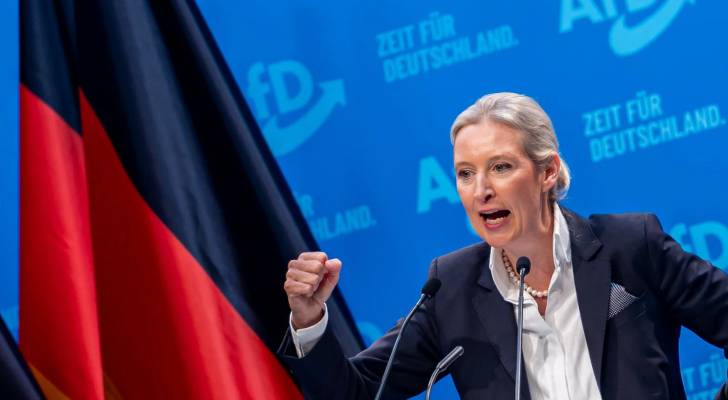Alice Weidel, co-chairwoman of AfD (Credit: Shutterstock)
German intelligence designates AfD as right-wing extremist group
Germany’s federal domestic intelligence agency has officially classified the far-right Alternative für Deutschland (AfD) party as a right-wing extremist group.
In its announcement, the Federal Office for the Protection of the Constitution cited the party’s “ethnicity- and ancestry-based understanding of the people” as incompatible with Germany’s democratic values. “The ethnicity- and ancestry-based understanding of the people prevailing within the party is incompatible with the free democratic order,” the agency said in a statement.
The designation follows years of surveillance and growing concern over the AfD’s rhetoric on immigration and national identity. Previously, the AfD had already been labeled extremist in three eastern German states where its popularity has surged.
- International criticism -
The decision has sparked international debate, especially from US conservative figures. US Secretary of State Marco Rubio condemned the move, calling it “tyranny in disguise,” while Vice-President JD Vance likened it to “rebuilding the Berlin Wall.” Vance added on X, “The AfD is the most popular party in Germany, and by far the most representative of East Germany. Now the bureaucrats try to destroy it.”
Germany’s foreign ministry responded strongly, “This is democracy. We have learnt from our history that rightwing extremism needs to be stopped.”
This is democracy. This decision is the result of a thorough & independent investigation to protect our Constitution & the rule of law. It is independent courts that will have the final say. We have learnt from our history that rightwing extremism needs to be stopped.
— GermanForeignOffice (@GermanyDiplo) May 2, 2025
Tech billionaire Elon Musk also joined the conversation, labeling the AfD “centrist” and arguing that banning it “would be an extreme attack on democracy.” Musk had previously appeared in a livestream with AfD leader Alice Weidel and urged German voters to back the party.
- AfD responds -
AfD’s leadership reacted angrily, claiming the designation was a political stunt ahead of the incoming government. “Clearly politically motivated” and a “severe blow to German democracy,” said joint leaders Alice Weidel and Tino Chrupalla. Deputy chairman Stephan Brandner called the decision “complete nonsense.”
Despite several scandals, including one member’s conviction for using banned Nazi slogans, the AfD doubled its vote share in February’s federal election and secured second place with 152 seats in the 630-member Bundestag. A vote is scheduled next week to confirm conservative leader Friedrich Merz as chancellor in a coalition with the centre-left SPD.
- Legal and political implications -
With its new classification, the AfD will now be subject to increased surveillance, including the potential use of informants. While the domestic intelligence agency cannot initiate a ban itself, its assessment could encourage political actors to pursue one through Germany’s constitutional court.
Some officials, like SPD deputy leader Serpil Midyatli, have openly called for banning the party. “It’s clear for me that the ban has to come,” she said. Schleswig-Holstein’s state premier Daniel Günther echoed that sentiment, warning of the AfD’s threat to “social harmony.”
Others, however, urged caution. Outgoing Chancellor Olaf Scholz warned against rushing to ban the party, and Saxony’s Premier Michael Kretschmer emphasized that defending democracy “begins in the heart of society.”




